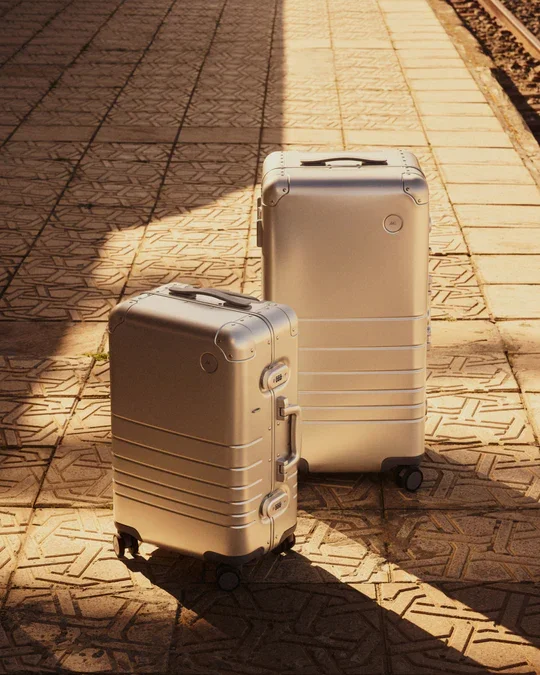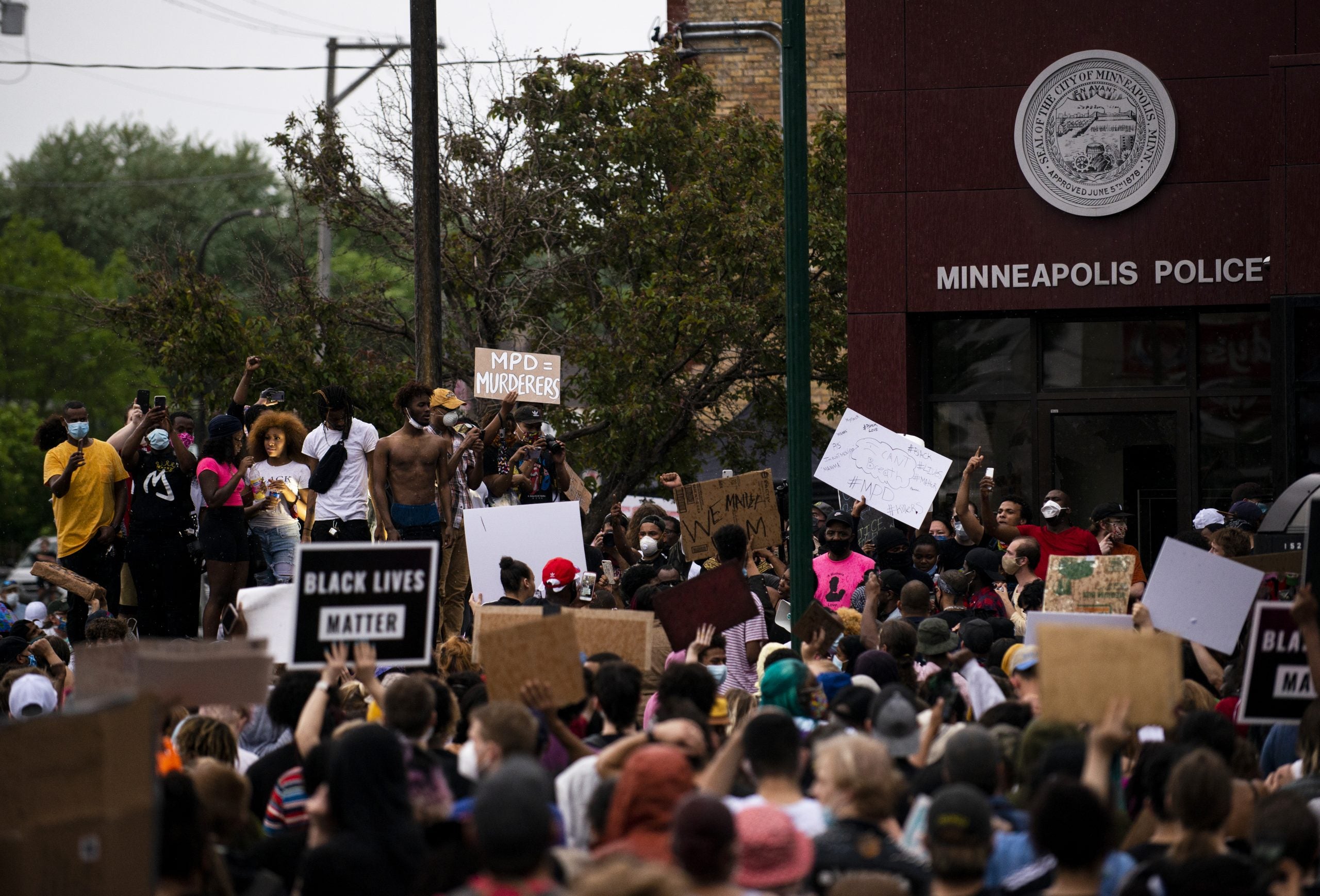This Juneteenth solidified the reality that we’re getting closer to the world we’ve been dreaming of for so long. A world that will be led by community, created from abolition, and shaped by deep experimentations in dignity and justice for all of us.
People hear abolish police, and they get scared. Doesn’t abolition mean the absence of? The absence of rule of law, the lack of someone there to help you in your greatest hour of need.
But if we take an honest look at the evidence, the true nature of policing in this country has always been about unjust power and criminalization of Black and Indigenous people, while also harming other communities of color and working class white people.
The police grew out of slave patrols meant to capture fugitives from slavery, later used to quash labor uprisings in the mid-1800s during the beginnings of the American system of concentrated capital that will make Jeff Bezos the world’s first trillionaire in 2021. The same system that threw more than 45 million working people into unemployment since COVID-19 hit in March of this year.
When we talk about the impact of the deadly culture of police violence, we are not talking about hypothetical statistics. We are talking about a nation of people directly harmed by policing. These are our families. Our neighbors. Our friends. Ourselves.
Police have been given carte blanche to terrorize Black communities for far too long. And when we attempt to hold them accountable, they respond with even more violence that is illegal and outside of whatever regulations are on the books, however strong they may be. Witness the unjust police response to the past few weeks of the uprising in defense of Black lives.
The true nature of policing in this country has always been about unjust power and criminalization of Black and Indigenous people, while also harming other communities of color and working class white people.
We cannot keep throwing money away at something we know isn’t working. In the midst of a global pandemic and the greatest economic crisis of our generation, we need those resources in our schools, toward our health, and for our futures. Yet, police departments continue to be rewarded for their bad behavior with outsized budgets which allow them to operate with impunity.
Over twenty years ago, Critical Resistance was founded with the red line of abolition guiding the movement. But more than that, we have been guided by a vision of what becomes possible when we no longer move from a place of criminalization and scarcity but instead believe in each other, in our communities, and in abundance.
When we fund communities and not cops, the hopeful vision of justice, community, and accountability that has brought millions of people into the streets since George Floyd’s murder and increased broad global support for Black Lives Matter, becomes possible.
When we say #DefundthePolice, what we’re really saying is #FundThePeople to be able to put resources toward real public safety. This intentional shift in how we spend public dollars will represent the beginnings of a just redistribution of wealth.
We know, and the research confirms, what creates community safety is stable and affordable housing, well-funded public schools, accessible and quality health care for all, including community-based, non-coercive mental health services, and ending the criminalization of unmet mental health needs and drug use. And we’ve seen the success of community-based and culturally relevant violence prevention programs.
Public investments for truly safe and equitable communities must address health disparities and include primary and preventative care, as well as accessible community-based mental health care, incorporating care that addresses the trauma of police violence. In the wake of COVID-19, we must also tackle underlying health conditions faced by Black people and the trauma and PTSD associated with so much loss in our community.
Already, there are communities all over the country that are seeing what’s possible when public health and safety become the goal, rather than policing for the sake of policing.
Mental Health First (MH) in Sacramento represents a new model for responding to mental health crises without the police. MH First responds to mental health crises including needs such as psychiatric emergencies, substance use disorder support, and domestic violence situations where the survivor may need support getting out of where they are.
In New York, Parachute NYC was a citywide community-based program by the New York City Department of Health and Mental Hygiene, through which a mix of clinicians and peer specialists offered support to residents aged 18-65 experiencing a psychiatric crisis through mobile crisis teams, crisis respite centers, and a peer-operated support line. Unfortunately, the city has not replaced the program’s initial private funding through a seed grant.
There are communities all over the country that are seeing what’s possible when public health and safety become the goal, rather than policing for the sake of policing.
More recently in response to the uprising in defense of Black lives, the Minneapolis City Council voted unanimously to disband its Police Department and replace it with community-driven public safety alternatives.
The last couple of weeks have also seen two major wins. The Los Angeles City Council introduced a measure to establish a crisis response team to replace police officers when responding to resident calls about substance abuse and mental health; this followed the city’s decision to cut $150 million from the LAPD’s budget. In Albuquerque, Mayor Tim Keller announced a new public safety department that will deploy social workers, housing and homelessness specialists, and violence prevention coordinators—all unarmed—to respond to mental health, substance use, and people experiencing homelessness.
Each city and community will have different needs and require uniquely tailored programs to meet those needs. Organizer and educator Mariame Kaba encourages us, “We need a million experiments. A bunch will fail. That’s good because we’ll have learned a lot that we can apply to the next ones.”
There are many ways for communities to step up now including freezing police budgets while building new models—and political will—for real public safety. And these models already exist around the country from decades of experimentation in law enforcement alternatives.
Amid the COVID -19 crisis we saw communities come together to offer mutual aid and ensure our loved ones and neighbors didn’t starve or go without shelter. It is in that same spirit that we must become sanctuary for each other as we transition from a police state to a beloved community.
The current system where we spend $100 billion a year on law enforcement was built over centuries with huge investments of resources and political will. We need time and resources to dream and build a new public infrastructure that will generate genuine safety in our communities.
We are working toward a world where we do not fear each other, our neighbors, or the people tasked with keeping us safe.
Today, the real work begins with diverting funds from criminalization, unjust policing, and racialized and gender-based violence and moving dollars with intention into public safety models that put the communities most impacted by crime and violence front and center in the narrative and solutions.
We are working toward a world where we do not fear each other, our neighbors, or the people tasked with keeping us safe.







We believe we can build a world free of policing, unapologetically. We know that it will take all of us. We are not under the illusion that we will build that world overnight. But we also know that we are making real gains. We look forward to joining with communities who are dreaming and visioning with us, all over the country and the world.
Mary Hooks is Co-Director of Southerners on New Ground (SONG), a home for intersectional LGBTQ liberation in the South. She is a leader with The Movement for Black Lives, a national network of over 150 leaders and organizations creating a broad political home for Black people to learn, organize, and take action.


